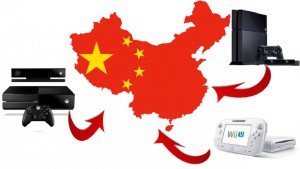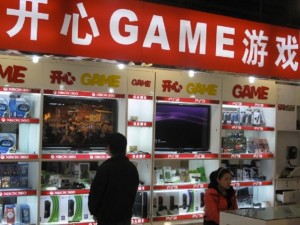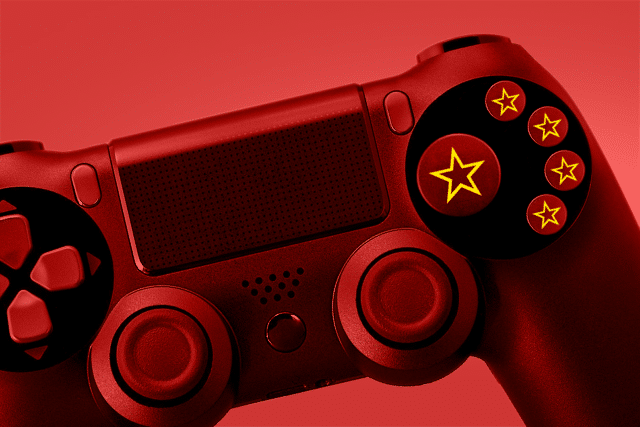Now that the ban on Western video games has been lifted for some time, American video game companies can finally look to the Eastern market – but what will it take to succeed? A complete video game localization or translation process may be the best route…
Bringing Western Video Games to the East
Video game localization and translation efforts could very well be the deciding factor in the foreign tech expansion of video games into the mainstream in China. Interference by the Chinese government has long dampened American and Japanese electronic entertainment businesses’ prospects in the country. In addition, despite their popularity, as they venture into this new market, Microsoft, Sony, and Nintendo may face more resistance than previously anticipated due to illegal sources and knockoffs.
Microsoft has forayed into the Chinese video game market, which is numbered at more than 400 million users. A ban placed in 2000 on console video games and hardware by the Chinese authorities for fear of their negative effect on the youth has been lifted in the past few years. Microsoft’s new Xbox One console, which saw release in Western markets in late 2013, was introduced into 37 Chinese cities at the end of September the following year. The announcement of the ban’s lift was met by increases in video game console manufacturers’ stock numbers, as investors saw the chance to capitalize on a massive untapped market; however, success in China is not as simple as just breaking through the red tape.
Video Games | When in China
 The lack of official access to American and Japanese consoles has had a strong hand in the popularity of video games played on cellphones, desktop computers, and laptops. Thus, what is popular in China differs significantly from what is a surefire blockbuster in the United States. Chinese-based developers, such as Perfect World, are jumping at the chance to have their games featured on brand-name consoles like Microsoft’s Xbox, and their local sensibilities and nuanced understanding of Chinese culture may aid the American company in finding a sizable niche.
The lack of official access to American and Japanese consoles has had a strong hand in the popularity of video games played on cellphones, desktop computers, and laptops. Thus, what is popular in China differs significantly from what is a surefire blockbuster in the United States. Chinese-based developers, such as Perfect World, are jumping at the chance to have their games featured on brand-name consoles like Microsoft’s Xbox, and their local sensibilities and nuanced understanding of Chinese culture may aid the American company in finding a sizable niche.
In terms of hardware, mobile gaming in particular is experiencing massive growth in China, reaching approximately 524 million users this past year as the populace quickly adopts new, high-tech phones; moreover, users appear willing to pay to play, and sales of mobile video games have risen almost 350% to more than $2 billion. Winning customers away from mobile platforms and confronting differences in taste are issues for creative departments to tackle. From a business perspective, there may be still greater challenges.
Video Games | Hiding in Plain Sight

Quality, not Quantity
Of course, a legal purchase will enable consumers to play online with other gamers on reliable, high-quality official networks. Most significantly, official video games and hardware will feature professional translations and localization – factors that Microsoft is counting on for success in China. The 2015 installment in their flagship franchise, Halo 5: Guardians, received Chinese localization in the form of professionally translated subtitles. Dedicated, quality Chinese translation efforts will be essential in luring Chinese consumers away from the gray market.
One of the main concerns still plaguing the Chinese video game market, aside from the overwhelming hold PC and mobile games currently have, is the lack of high quality (or AAA) games available to consumers. Restrictions by the Chinese government on what is allowed to be sold have hampered the ability to properly introduce games popular in the west, and even in China due to their current availability on the black market, along with the consuls.
Aside from the translation services, the gaming market situation in China truly emphasizes the importance of localization for any business attempting to launch in a foreign market. Big players like Microsoft and Sony will have to undergo video game localization processes to alter their popular titles already available, and get them in-line with the language and the cultural expectations (not to mention that they will actually have to manufacture them in the country as well). Else they will have to work to release entirely new titles that again comply with the Chinese language and restrictions, but that also appeal to the Chinese populace.
Clearly, it is no longer enough to just offer Western goods; products must be made with the consumer in mind. And in terms of technology, which today emphasizes user interface and experience, this means thorough translation and Chinese localization (or that of any country for that matter) in order to cater to the local culture.
About Language Connections:
Language Connections is one of the top language service companies in the US. Over the last 30 years, we’ve focused on providing the best business translation services, interpreting services, as well as interpreter training and customized language training programs. In addition to top-tier corporate language training, we offer certified corporate interpreters and professional business translation services in 200+ languages. Our network includes linguists with backgrounds in all major industries. They’re ready to meet your needs, whether they’re for technical translation services, legal translation, government translation services, international development translation services, education translation services, life sciences translation, or something else. Reach out to us today for a free quote on our cost-efficient and timely translation services, interpreters, or other linguistic services.
Language Connections LLC
2001 Beacon Street, Suite 105,
Boston, MA 02135
Phone: +1-617-731-3510
Email: service@languageconnections.com


